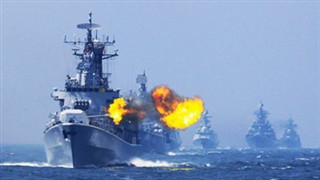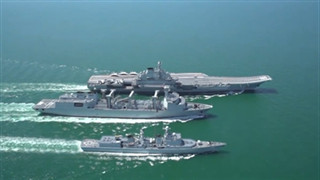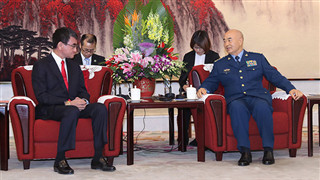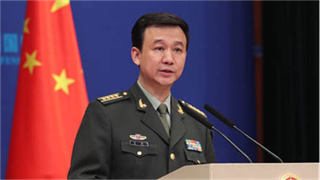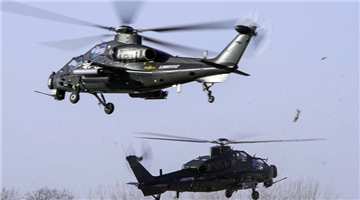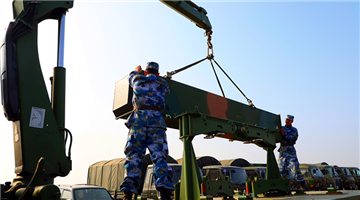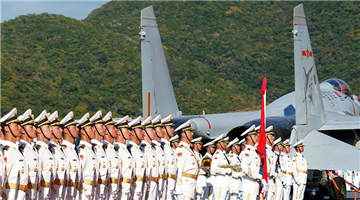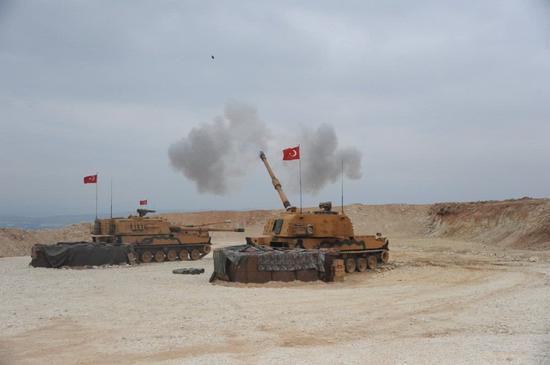
By Dong Manyuan
Turkey is planning to step into the ongoing proxy war in Libya through military means, a significant step to expand its geopolitical and geo-economic boundaries and the latest manifestation of the upgraded geopolitical game between Ankara and Riyadh.
Two regimes currently co-exist in Libya - the Government of National Accord (GNA) in Tripoli that’s recognized by the UN and the Tobruk regime led by warlord General Haftar, which is militarily strong but hasn’t been recognized by the UN yet. The Tobruk regime has intensified attacks of Tripoli in the second half of this year in attempt to overthrow the National Accord government and unify the whole country. The situation is in disfavor for the National Accord government now, which, however, has the support of Turkey that hopes to keep alive the maritime delimitation agreement they signed at the end of November. The agreement gives Turkey a larger exclusive economic zone (EEZ) in east Mediterranean.
The east Mediterranean region has seen surging contentions for natural gas resources recently. Israel, to divide and conquer Arabian countries one by one, has exploited two natural gas fields in that region by a tough way. These natural gas fields can not only meet Israel's own gas supply demands, but also provide a lot of extra natural gas for export. Israel thus joined forces with Egypt and Jordan, and then with Cyprus and Greece, to set up a Mediterranean gas cooperative alliance.
Israeli preemptive steps in regional economic development left Turkey being on edge. In the first place, Turkey expanded the scope of its maritime exclusive economic zone as much as possible through legal means, by signing the Turkey-Libya Maritime Boundary Delimitation Agreement, which displeased Greece, Cyprus and Egypt. On the other hand, Turkey sent drilling vessels for exploratory natural gas drilling in Cyprus’ EEZ, which further aggravated conflicts.
Turkey’s interference in the proxy war in Libya will escalate its geopolitical game with Saudi Arabia, which first became acute in 2018 when Saudi crown prince Mohammed Bin Salman described Turkey as part of a “triangle of evil” along with Iran and hardline Islamist groups, accused Turkey of trying to reinstate the Islamic Caliphate, abolished nearly a century ago when the Ottoman Empire collapsed, and accused Erdogan of acting like an “Ottoman sultan”. This has left little room to ease the relation between the two countries. The media reported that the Libyan warlord Haftar is endorsed by Saudi Arabia and the UAE, which gives Turkey the reason to support the Government of National Accord.
To obtain strategic supremacy over Saudi Arabia, Turkey has taken moves in northern and eastern Africa. It set up a military base in Somali to deter Saudi Arabia on the south; now it has assigned troops to Libya on the south of the Mediterranean Sea. The series of steps had something to do with the Turkish leader’s “2023” and “2053” strategic visions and constituted an important part of them.
Predictably, Ankara will send troops to Libya step by step, first the Special Forces and coaches to help train the National Accord troops to enhance their combat force and provide weapons and ammunition. If this doesn’t prove effective, Ankara will probably send a large group of ground forces to fight side by side with the government soldiers to foil Haftar’s offensives. An intact GNA will help the Turks secure the agreement on maritime boundaries in the Mediterranean Sea.
Whether Haftar will occupy Tripoli, the capital city, and whether the National Accord Government will thwart Haftar’s attacks will depend on the resources Turkey and Saudi Arabia will invest in the two proxies, which is to be observed.
(The author is a senior research fellow at the China Institute of International Studies.)
